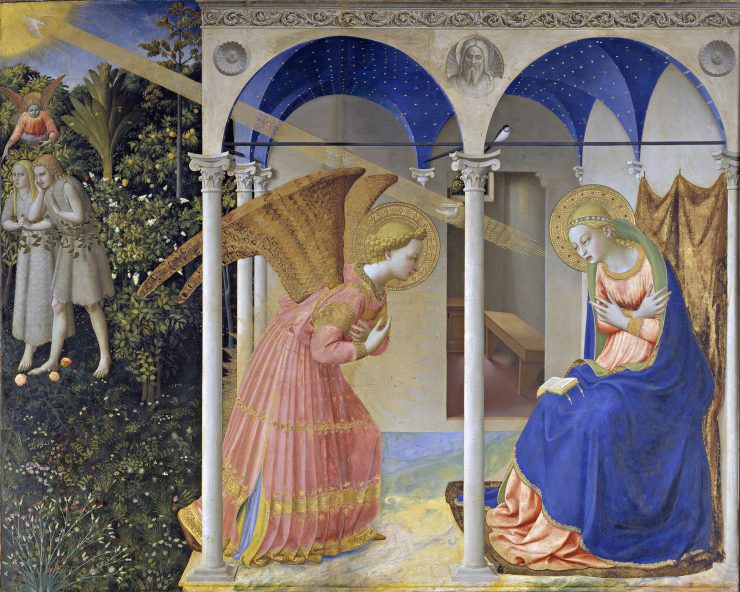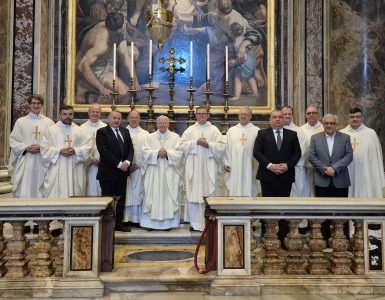On the Blessed Virgin Mary in the life of the Pilgrim Church
“As the Council teaches, “‘The obedience of faith’ (Rom. 16:26; cf. Rom. 1:5; 2 Cor. 10:5-6) must be given to God who reveals, an obedience by which man entrusts his whole self freely to God.” This description of faith found perfect realization in Mary. The “decisive” moment was the Annunciation, and the very words of Elizabeth: “And blessed is she who believed” refer primarily to that very moment.
Indeed, at the Annunciation Mary entrusted herself to God completely, with the “full submission of intellect and will,” manifesting “the obedience of faith” to him who spoke to her through his messenger. She responded, therefore, with all her human and feminine “I,” and this response of faith included both perfect cooperation with “the grace of God that precedes and assists” and perfect openness to the action of the Holy Spirit, who “constantly brings faith to completion by his gifts.” (…)
The Annunciation, therefore, is the revelation of the mystery of the Incarnation at the very beginning of its fulfillment on earth. God’s salvific giving of himself and his life, in some way to all creation but directly to man, reaches one of its high points in the mystery of the Incarnation. This is indeed a high point among all the gifts of grace conferred in the history of man and of the universe: Mary is “full of grace,” because it is precisely in her that the Incarnation of the Word, the hypostatic union of the Son of God with human nature, is accomplished and fulfilled. As the Council says, Mary is “the Mother of the Son of God. As a result she is also the favorite daughter of the Father and the temple of the Holy Spirit. Because of this gift of sublime grace, she far surpasses all other creatures, both in heaven and on earth.” (…)
“And if after the announcement of the heavenly messenger the Virgin of Nazareth is also called “blessed among women” (cf. Lk. 1:42), it is because of that blessing with which “God the Father” has filled us “in the heavenly places, in Christ.” It is a spiritual blessing which is meant for all people and which bears in itself fullness and universality (“every blessing”). It flows from that love which, in the Holy Spirit, unites the consubstantial Son to the Father. At the same time, it is a blessing poured out through Jesus Christ upon human history until the end: upon all people.”
Fra Angelico, Annunciation
Tempera on panel, circa 1430-1432 (Museum del Prado, Madrid)





